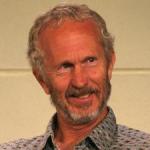In April, 2012, the Institute formed a partnership with the University of Oxford called the Institute for New Economic Thinking at the Oxford Martin School. The vision for that partnership was that Oxford would become a major European hub of new economics research, leveraging the University’s diverse community of world-class scholars, and furthering the Institute’s mission of confronting the world’s greatest challenges through building a global community of new economic thinkers and a body of new economic knowledge.
Interdisciplinary
The Institute includes over 75 affiliated scholars from disciplines that range from economics, to mathematics, computer science, physics, biology, ecology, geography, psychology, sociology, anthropology, philosophy, history, public policy, business, and law. Faculty, post-doctoral fellows, and students are drawn from departments and schools across the University.
Research
Bringing diverse perspectives to bear on problems that include:
- How do we make the global financial system more robust and resilient?
- How do we re-invigorate economic growth and innovation?
- How do we address rising economic inequality?
- How do we create a model of economic growth that is environmentally sustainable?
- How should we teach economics to the next generation of leaders?
Researchers are organized into six major programs:
- Economic Modeling (EMoD)
- Complexity Economics
- Ethics and Economics
- Employment, Equity and Growth (EEG)
- Economics of Sustainability
- Economic Curriculum Development (CORE)
Impact
Researchers work closely with policy-makers and leaders in business and civil society to bring new economic ideas and thinking into debates and practice in the public, private and non-profit sectors.
In addition to its applied work, the Institute conducts theoretical and empirical research on economic issues using innovative approaches and tools ranging from complex systems theory and agent-based modeling, to network analysis, novel econometric techniques, behavioral and experimental economics, and “big data” techniques.





